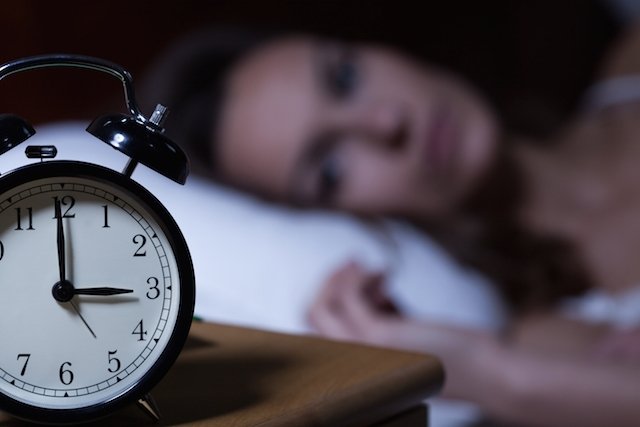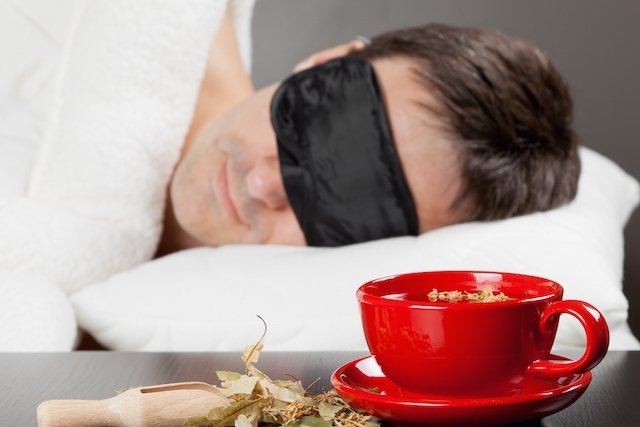Insomnia is a sleep disorder that causes difficulty falling asleep or staying asleep, and may appear sporadically or frequently. This situation is more common in periods of stress, and may also be associated with illnesses, such as depression, or be associated with situations such as pregnancy, menopause or old age, periods that cause changes in the body’s physiology.
To treat insomnia, it is very important to adopt good habits to re-educate the body to fall asleep at the right time, called sleep hygiene therapy, such as avoiding watching television or looking at your cell phone at bedtime, avoiding going to bed each day at a different time and practicing physical exercise during the day, for example. Additionally, there are natural remedies, such as passion fruit tea or chamomile, that can be used to facilitate sleep.
Pharmacy sleeping pills, such as Diazepam or Clonazepam, for example, should be avoided due to their risk of dependence and side effects, such as falls, and should only be used under medical advice.

Main causes
The causes of insomnia may be related to stress, anxiety and even excessive consumption of stimulating foods, such as coffee. Other common causes of insomnia include:
- Depression;
- Hormonal changes, such as menopause;
- Use of illicit drugs;
- Prolonged use of sleeping pills;
- Not having good sleeping habits, such as not respecting bedtime and wake-up times;
- Jet Lag Syndrome or changing time zones;
- Continuous changes in schedules, as occurs with professionals who work shifts;
- Aging, as the elderly are more prone to sleep changes and difficulty sleeping;
- Diseases, such as fibromyalgia, which generate pain throughout the body without apparent justification, causing fatigue.
The diagnosis of insomnia must be made through a doctor’s assessment of sleep patterns, medication use, degree of psychological stress, alcohol consumption and level of physical activity. It must be based on individual needs because the need for hours of sleep is not the same for everyone.
What to do
To combat insomnia and get a good night’s sleep, it is important to change some habits. So, what you can do to combat insomnia is:
1. Natural treatment
The natural treatment for insomnia can be done by drinking a calming tea, such as passion fruit, lemon balm or chamomile, for example, as these medicinal plants have calming properties that can help you sleep better. To make chamomile tea, add 1 tablespoon of dried chamomile flowers to 1 cup and add boiling water and drink when warm.
In addition, it is possible to use natural herbal remedies, such as Valerian, which has a sedative and analgesic action. Check out other natural remedy options for insomnia.

2. Nose hygiene therapy
Sleep hygiene therapy is an effective way to combat insomnia and consists of changing habits that help increase melatonin levels and, thus, promote a good night’s sleep. Some of the habits that can be adopted are:
- Always go to bed and get up at the same time;
- Avoid sleeping during the day;
- Do not watch television, use cell phones, computers or tablet 1-2 hours before bedtime;
- Avoid staying in bed throughout the day or doing various activities such as studying, reading or using your cell phone;
- Avoid excessive lights or noise in the room;
- Prefer physical activities during the day;
- Eat light foods before sleeping.
In addition, cognitive-behavioral therapy or alternative therapies may also be recommended, such as meditation, acupuncture, massages or phototherapy, for example.
3. Treatment with medicine
Treatment for insomnia can be done with the use of anxiolytic or sleep medications, as they are popularly called, such as Lorazepam, Clonazepam or Diazepam. However, these medications should only be used after a doctor’s recommendation and in very specific cases, as they can cause dependence and side effects, such as falls and memory changes, and can even worsen the person’s sleep. See which are the most recommended sleeping pills.



